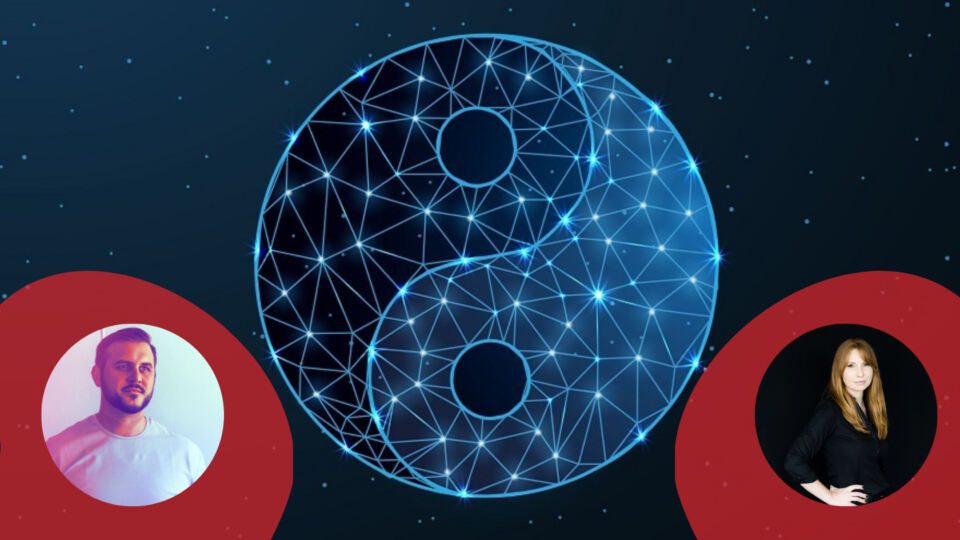Here’s a bold statement: DAOs will revolutionize the way retailers engage with consumers, but only when brands truly understand those customers first.
Of course, I also understand that a large portion of those who just read that attention-grabbing opening sentence are saying, ‘what the heck are DAOs?’ Okay, perhaps it would help to understand them a bit more before grasping why they’re revolutionary.
DAO stands for decentralized autonomous organization. Press pause on ‘decentralized’ and ‘autonomous’ for a moment and focus on the ‘organization’ part. In its simplest form, a DAO is nothing more than a group of people working together for a common purpose. Can that organization be a business? Yes. Can it also be a group of people pooling their money together to try to buy an original copy of the U.S. Constitution? Yes, there are no limits on what a DAO can be. It’s evolving constantly.
What makes DAOs different is the way in which they use blockchain to help manage the organization and how it operates. That’s where the words ‘decentralized’ and ‘autonomous’ come in. These organizations are decentralized because there is no top-down power structure driving all the decision-making; DAOs have decentralized power structures.
All members of the organization have equal input and control, based on the number DAO tokens a member holds (which isn’t exactly democratic, but we’ll table that discussion for now), over the decisions it makes. They strive to be truly democratic, and blockchain helps keep it that way. Membership and voting rights are managed with tokens, and thanks to the security provided by blockchain, each member can easily prove their ownership without any human error or unethical practices showing up.
Some brand managers who are more familiar with DAOs may get the definition but struggle to square the retail applications when the very nature of DAOs is generally anti-branding and anti-corporate. Although to be fair some DAOs do want to build strong ‘brands,’ with FriendsWithBenefits, PleasrDAO, PoolSuite, MolochDAO all investing in their brands.
I believe we’re going to see all brands experimenting with DAOs and other blockchain-enabled technology. Retail brands have already jumped on the NFT and metaverse bandwagon earlier than other types of brands, and some are already beginning to enter into the world of DAOs. While a DAO itself is anti-brand and anti-corporate, much of that stems from the centralized power that drives brand and corporate decision-making. However, DAOs represent an opportunity to distribute some control of that brand power to the communities that love and support them.
Look closely and there are many innovative ways retailers could use DAOs. Some that could be particularly effective are VIP communities, a new form of loyalty programs, or consumer feedback platforms. In these instances, DAOs become a tool for membership, access and control.
Imagine belonging to Nike’s VIP DAO and being able to vote for the athletes the brand works with or the items in a new product launch. Or imagine being rewarded with early access to product launches or chats with celebrity makeup artists as a member of a Sephora loyalty DAO. Or an Apple Feedback DAO membership that provided you with devices to test before they’re available to the public and the ability to provide input on and shape the final products.
Many examples of DAOs today are centered around funding and purchasing. Some that have gotten press coverage are ConstitutionDAO, a group that raised nearly $47 million to attempt to buy an original copy of the U.S. Constitution, and the Buy the Broncos DAO, a group raising money to purchase the Denver Broncos. Their goals are singular and simple: Raise a lot of money and buy an expensive thing.
A potentially more relatable example of how retail brands can start to engage their communities using DAOs as a tool is Old Navy. To be clear, Old Navy didn’t use a DAO, but they did deepen the brand’s relationship with its community and provide a value exchange when they offered their social media followers the opportunity to write a TV commercial. If you imagine that community in a DAO instead of on social media, you can start to imagine the types of engagements that could become much more easily facilitated and more commonplace in the future.
DAOs will never be the thing that revolutionizes the world. They are tools. Tools only serve to help creators, dreamers, doers, visionaries and bold thinkers bring their ideas to life in revolutionary ways. Understanding your audience and finding fresh ways to engage with them is what will ultimately drive the success of any DAO. No matter what technology becomes available, the only way for brands to make it valuable is to focus on the people they’re trying to reach and deepen their connection with them.
Jonny Howle is a designer with experience in product, UX, UI, and visual design with a career beginning in advertising art direction at the University of Texas. Currently, he is Co-founder and Chief Product Officer at Disco, a digital data and identity consultancy. Previously he held positions at uPort (ConsenSys) as an Experience Designer and at IBM Blockchain designing Supply Chain Solutions that leveraged Hyperledger Fabric. This combined experience has led Howle to work at the intersection of security, privacy, transparency, and usability. As a former creative director with a history of creating innovative and award-winning work, Ashley Lapin co-founded Current Forward with the goal of helping brands find fresh ways to be relevant to their audiences. She thrives on uncovering consumer insights to drive business value for brands like WW, Mailchimp and Pepsi. Her work has been recognized with Gold Addys, IAC Best of Show awards, an OMMA Website Excellence award and more. As a former Miami Ad School Professor and long-time writer and creator, she works to inspire and teach others while constantly taking on new challenges.




